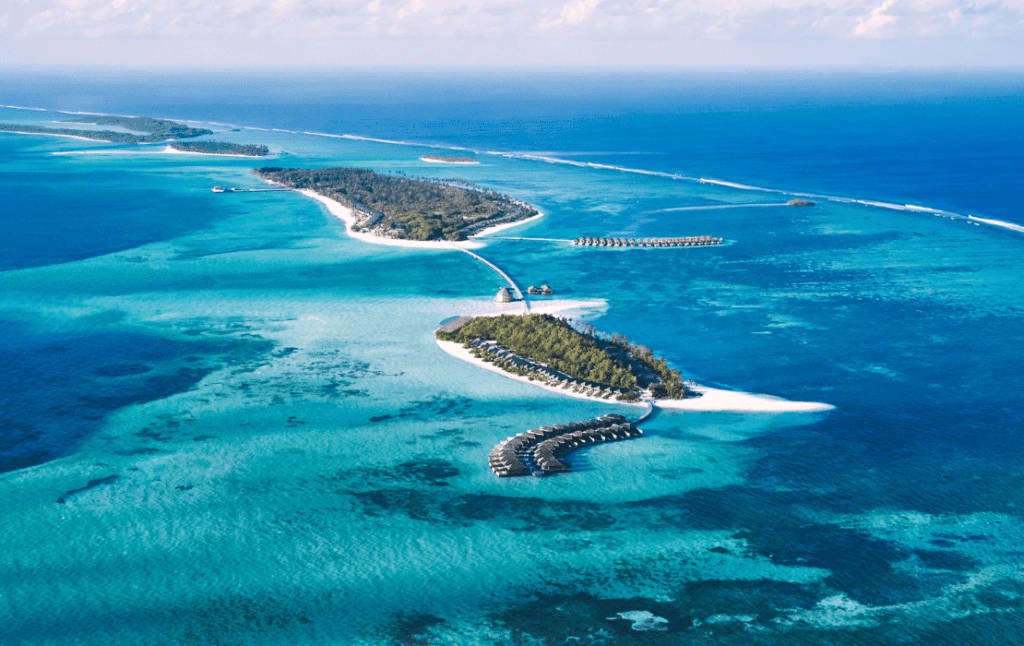
1. Maldives Becomes Fifth Nation to Ratify UN High Seas Treaty
ISTANBUL — The Maldives parliament approved the UN High Seas Treaty to protect oceans and became the fifth country to ratify after Chile, Palau, Belize, and Seychelles. The country’s Foreign Minister Moosa Zameer said in a statement that President Mohamed Muizzu “is committed to protecting and preserving the health and wealth of our Ocean.”
The island nation has approved the UN Convention on the Law of the Sea on the conservation and sustainable use of marine biological diversity. In January, Palau and Chile became the first nations to approve and sanction the UN High Seas Treaty formally. In total, 89 countries have signed it, but they must also ratify the treaty to take effect. This treaty would be the first global law to require protecting and controlling marine life in areas outside countries’ borders.
Thank you for your generous gift that will help us continue the production of this weekly, free publication
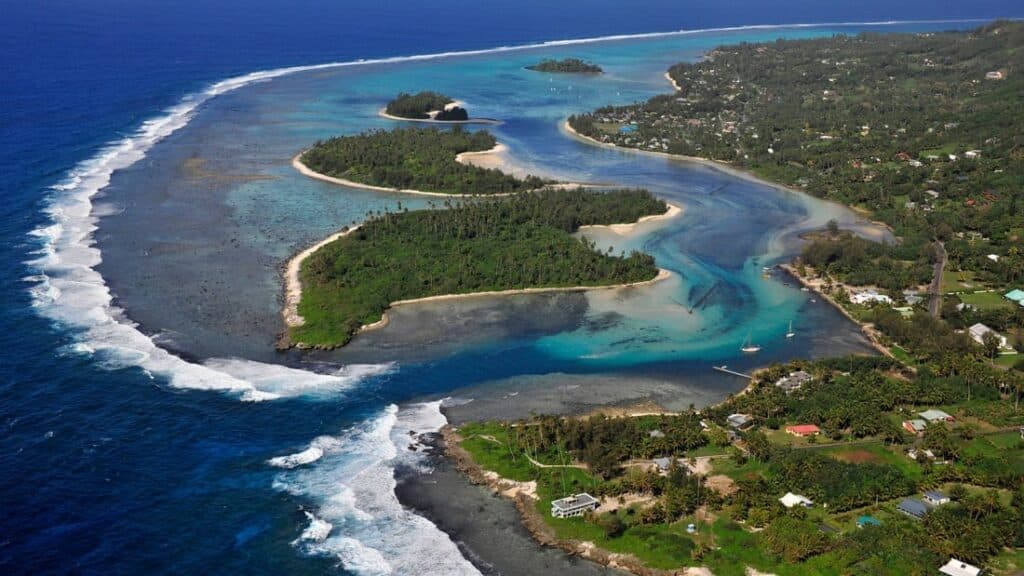
2. Vietnam and Cook Islands Explore Cooperation Potential
Tom Marsters, Representative of King Charles III in the Cook Islands, said the appointment of Vietnam’s first Ambassador to the Cook Islands demonstrates a growing interest in fostering cooperation with the island nation and the broader South Pacific region. During a reception in Avarua on May 8 for Vietnamese Ambassador to New Zealand Nguyen Van Trung, who was presenting his credentials, Marsters expressed his hope for developing friendship and equal and mutually beneficial cooperation between the two nations.
He hoped for a world order based on the rule of law and collaborative efforts to combat climate change and sustainably manage and exploit marine resources. The Cook Islands, with a total land area of just 266.7 sq. km, comprises 15 main islands scattered across a vast ocean territory of over 2.2 million sq.km./.
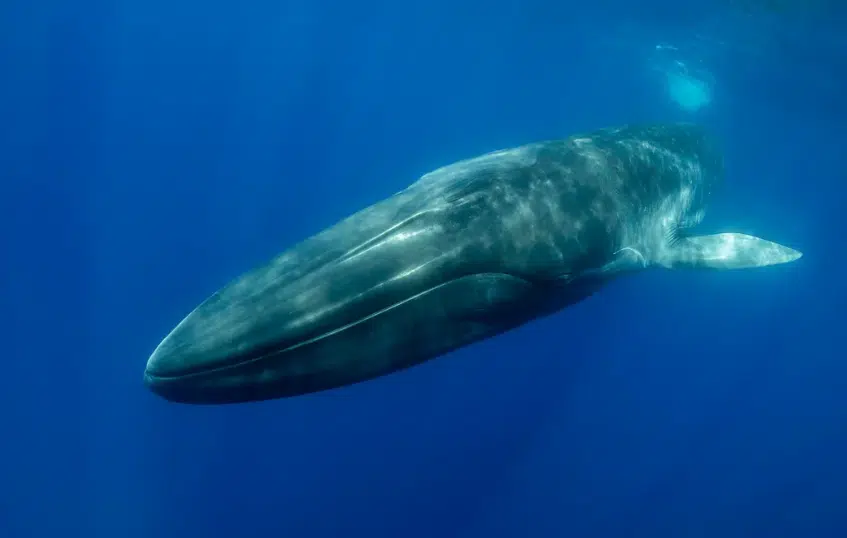
3. Japan to Start Killing Fin Whales
JAPAN – Five years after the country resumed commercial whaling, it has announced it will hunt vulnerable fin whales. Since Japan left the International Whaling Commission and resumed commercial whaling in 2019, it has been focused on hunting three species: minke, Bryde’s, and sei whales. Both minke and Bryde’s whales are currently considered ‘of least concern’ by the IUCN Red List of Threatened Species, while sei whales are endangered.
Now, vulnerable fin whales will be added to the country’s list of commercially caught species. The impacts of climate change – which could lead to more poverty and hunger – could drive some people to turn to whales for food. “We cannot rule out that people (in developing countries) will become increasingly interested in the use of wild animals – such as whales and dolphins – as a resource,” says Luke McMillan of Whale and Dolphin Conservation (WDC).

4. Canada’s First Blue Park Is a Stunning Showcase of Marine Stewardship
A COASTAL FIRST NATION celebrates global recognition of its marine protected area after snagging a “blue park” designation highlighting exemplary ocean conservation efforts. The Kitasoo Xai’xais First Nation (KXFN) Gitdisdzu Lugyeks Marine Protected Area (MPA), about 500 kilometers north of Vancouver, is Canada’s first certified blue park. It will join 30 other parks around the world, which have been awarded “blue park” status by the Marine Conservation Institute, an international science-based group that advocates for ocean conservation.
Gitdisdzu Lugyeks is also the first Indigenous-protected marine blue park in the world. Meanwhile, the federal government has been slower to act. The KXFN has worked for decades on the B.C. Northern Shelf Marine Protected Area Network—a yet-to-be-realized patchwork of MPAs across B.C.’s central and northern coasts. Frustrated with Ottawa’s slow pace, KXFN’s leaders formally and unilaterally announced the Gitdisdzu Lugyeks MPA in June 2022.
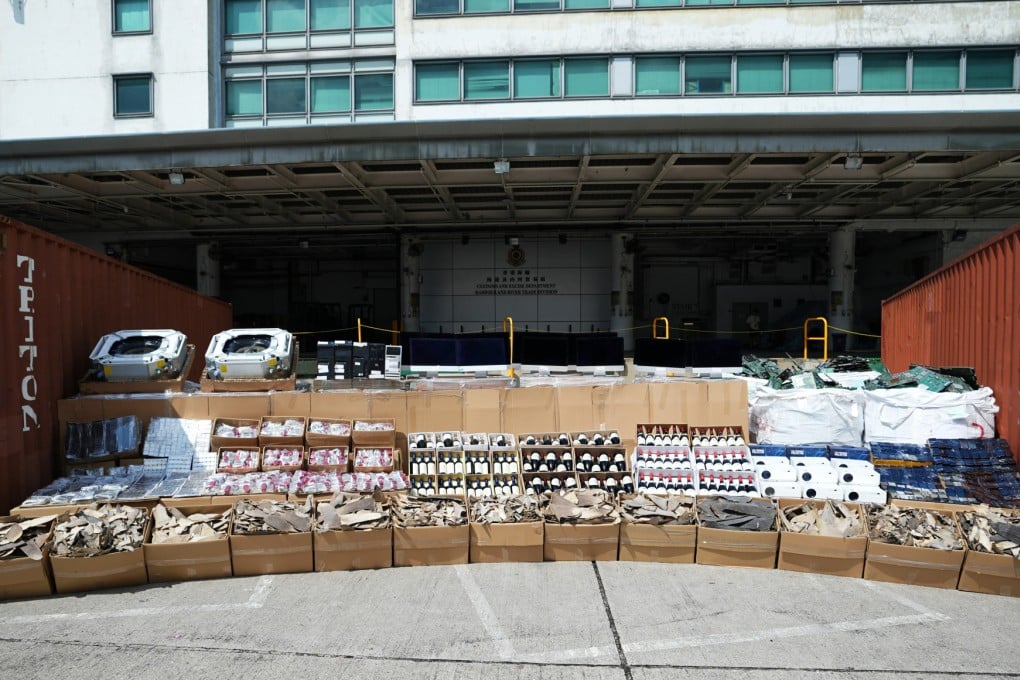
5. Hong Kong Customs Officers Put the Bite on Shark Fin Smugglers in HK$100 Million Raids on Cargo Ships
HONG KONG — Customs officials have seized about HK$100 million (US$12.8 million) in contraband, including dried shark fins, and arrested three men after a raid on several cargo ships. Customs said on Friday the goods impounded in operation, code-named Wave Breaker, included electronic products, wine, and frozen meat.
The seizures came after officials identified six ships scheduled to leave the city for Malaysia, Shanghai, Nansha, and Macau between August and September. The department said officials were investigating six separate cases and did not rule out the possibility of further arrests. A conviction for importing or exporting shark fins can lead to a fine of up to HK$10 million and ten years in jail. Customs officials seized more than five tonnes of dried shark fins in June.
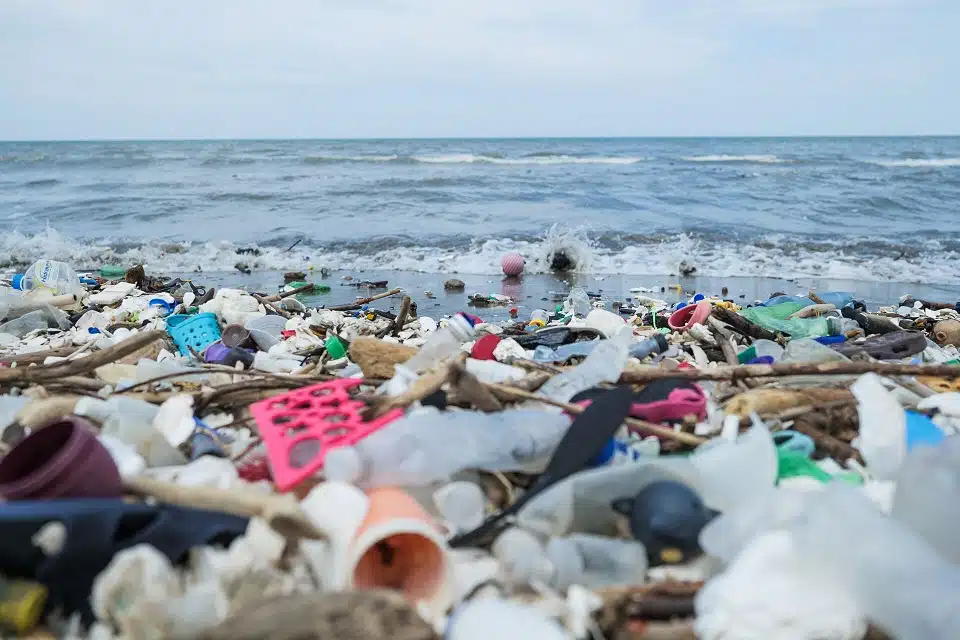
6. World Earth Day: Lagos Single-Use Plastic, Styrofoam Ban Needs More Grassroots Awareness
LAGOS, Nigeria – generates up to 32 million tonnes of solid waste annually. An estimated 2.5 million tonnes of plastic waste is generated annually, 15 % of which is generated in Lagos alone. The Lagos ban, announced in January, initially sparked a wave of optimism. However, the long-term implementation of the ban has been a concern given Nigeria’s poor track record of sustained implementation.
In many areas of the city, food sellers are still using styrofoam, and residents of such areas may not even be aware of the ban. People need to know why the ban exists, and this must be broken down so the average man can fully understand. Effectively deploying mainstream media, social media, and billboards can serve a multilevel purpose in terms of education and awareness.
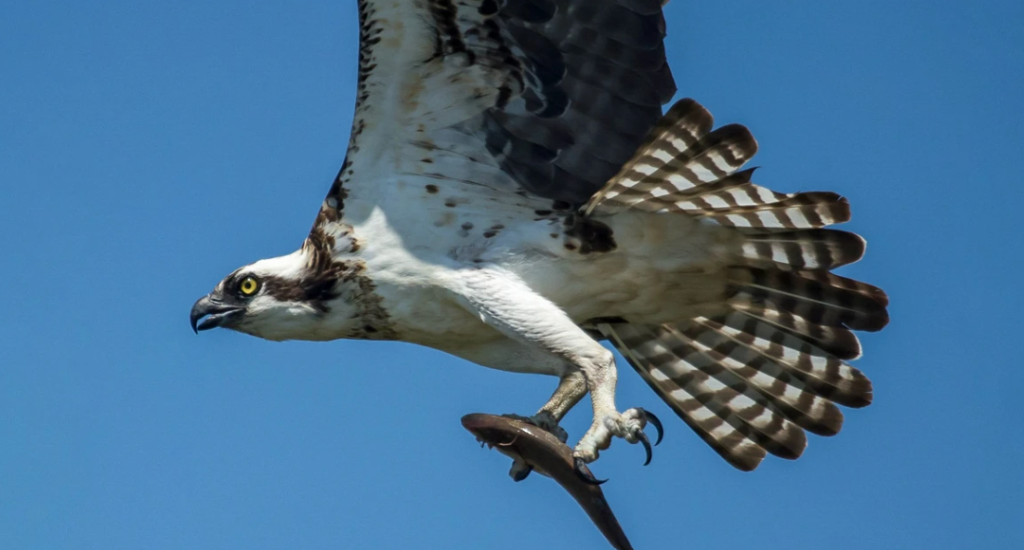
7. Researchers Sound the Alarm Over the Chesapeake Bay’s Ospreys
In the world’s largest population of fish-eating raptors, reproductive rates have fallen below DDT-era lows. Scientists say overfishing by one company is to blame. As always, every story tends to have at least two sides. Read the article to understand the history of Ospreys in the Chesapeake Bay, what scientists contend is the reason for the current downturn in their successful rate of “hatching,” and the importance of high-fat Atlantic Menhaden to their diet.
On the “other side, ” a commercial company states that it has long been attacked by those “who refuse to accept the science-based conclusions of respected government agencies and independent assessment bodies.” The company also pointed to the Marine Stewardship Council’s 2019 certification of the menhaden fishery as sustainable. Outstanding photo series and background of the Ospreys at the bottom of the article. Click the link, read the article, and be informed!
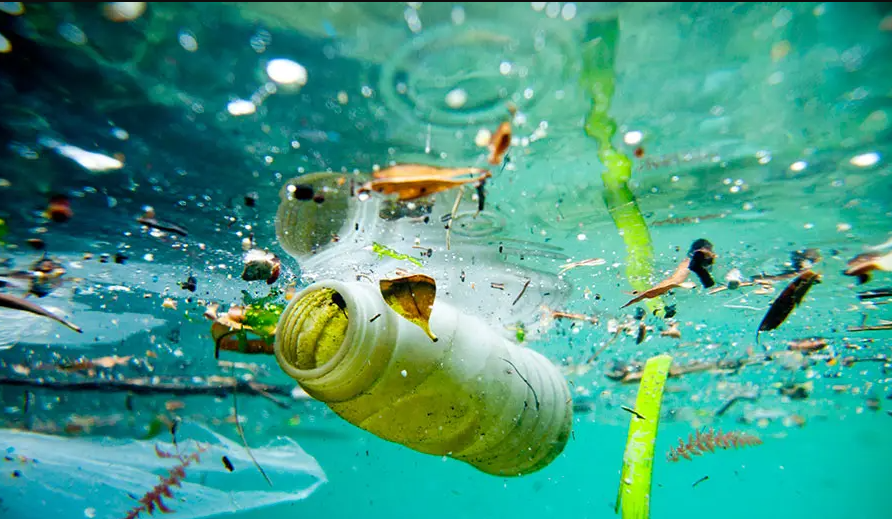
8. A Toothless Treaty Won’t Solve the Plastics Crisis
Negotiators of an international legally binding treaty on plastic pollution, including in the marine environment, just concluded their fourth session on April 30 in Ottawa, Canada. Two thousand five hundred (2,500) delegates attended the latest round, including negotiators from over 160 countries, scientists, youth representatives, Indigenous groups, business lobbyists, and observers. But with four rounds of talks now down and just one to go—in Busan, South Korea, in November—negotiators left Ottawa with no agreement on the scope of the future treaty nor any narrowing of options.
The global plastic pollution crisis desperately needs international cooperation and management, even as the material remains critical to fields like medicine, aeronautics, and agriculture. While only 9 percent of global plastic is presently recycled, global plastic consumption—much of it products with single or short-term uses—and global plastic waste are expected to triple by 2060.
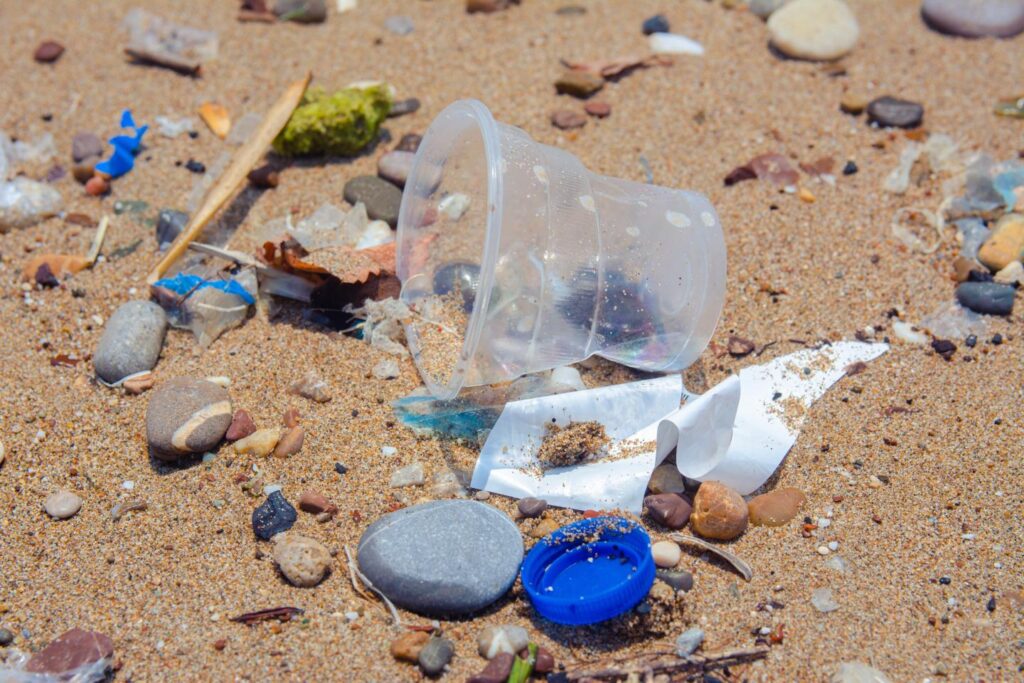
9. Global Producer Responsibility for Plastic Pollution
Plastic pollution is a globally ubiquitous and increasing problem. It is harmful to humans and the ecosystem health. Global plastic production is fundamentally linked to fossil fuel extraction and climate change, leading to increased volumes of plastics and associated chemicals and byproducts released into the environment throughout the plastic life cycle. One of the main challenges of addressing plastic pollution is identifying where the plastic products come from and who produced them.
Still, producers of this kind of pollution can often be traced by product labels that help to determine their company. However, there is a need to standardize brand audit event data and link brands to producers, which would help in several ways. In the past, the discourse on solutions to plastic pollution has primarily focused on consumer-based actions and waste management infrastructure instead of producer responsibility.
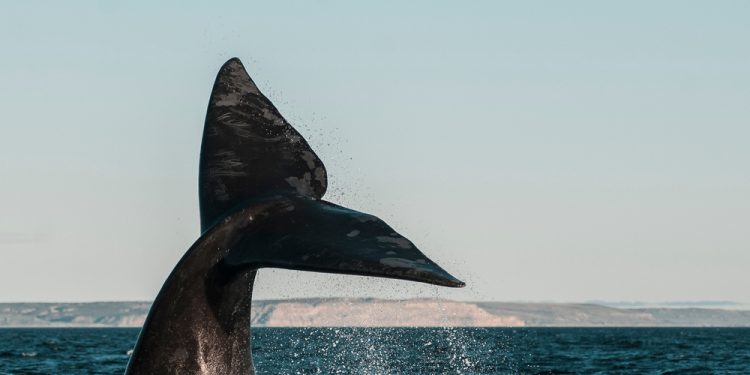
10. Whale Carcass Found on Cruise Liner Bow in New York
BROOKLYN, N.Y. — Marine conservationists and government scientists are investigating the circumstances surrounding the discovery of a 44-foot whale carcass on the bow of a cruise liner as it approached New York City’s Port of Brooklyn. The Atlantic Marine Conservation Society performed a necropsy and identified it as a female sei whale, an endangered species typically found in deep ocean waters, far from shore. But the crucial question in everybody’s mind is whether the whale died before or after coming into contact with the vessel.
Various samples of the whale’s organs, tissues, and bones were collected for toxicology and pathology analysis. According to an online statement from the society, the necropsy conducted on Tuesday revealed evidence of tissue trauma around the whale’s right shoulder blade region, along with a fracture in the right flipper. The whale’s gastrointestinal tract was found to be full of food.
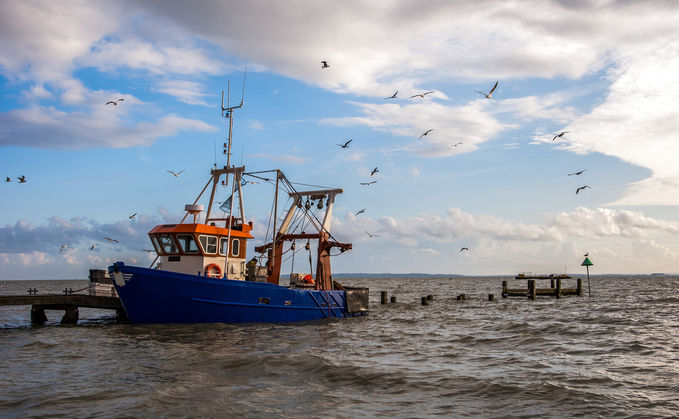
11. UK Government Embraces High-Tech Solution to Safeguard Fish Stocks in English Waters
United Kingdom — To fortify the sustainability of fish stocks in English waters, the UK government plans to use cutting-edge Remote Electronic Monitoring (REM) technology. The initiative integrates cameras, gear sensors, and GPS units to ensure that catches are accurately recorded and fish are not unlawfully thrown back into the sea. Volunteers in priority fisheries will begin using REM systems this summer.
Their work will help refine the monitoring objectives and ensure the technology works for fishers. Once the monitoring objectives have been finalized and the REM systems are demonstrated to be working well, they will become mandatory for all vessels in those fisheries, including non-UK vessels. England will also adopt a different approach to managing discards, with changes to be made to better account for catches and schemes to identify ways to reduce unwanted catch.
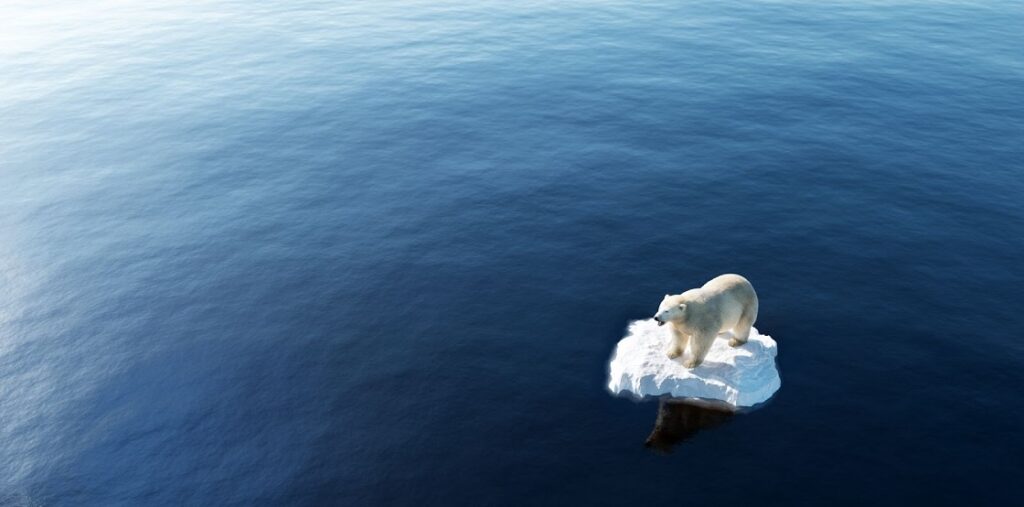
12. The Latest Monmouth University Poll on Climate Change
“Nearly 3 in 4 Americans (73%) believe the world’s climate is undergoing a change leading to more extreme weather patterns and sea level rise,” according to the latest Monmouth University Poll, prompting Patrick Murray, director of the independent Monmouth University Polling Institute to comment, “Most Americans continue to believe climate change is real.”
Acceptance of climate change is slightly less prevalent than in earlier polls; political affiliation continues to be associated with views on the reality and causes of climate change. Do you have an inquiring mind? Would you like to see the questions used in the poll and how they were sorted out according to age, political affiliation, beliefs on what causes climate change, etc.? Click the second link!
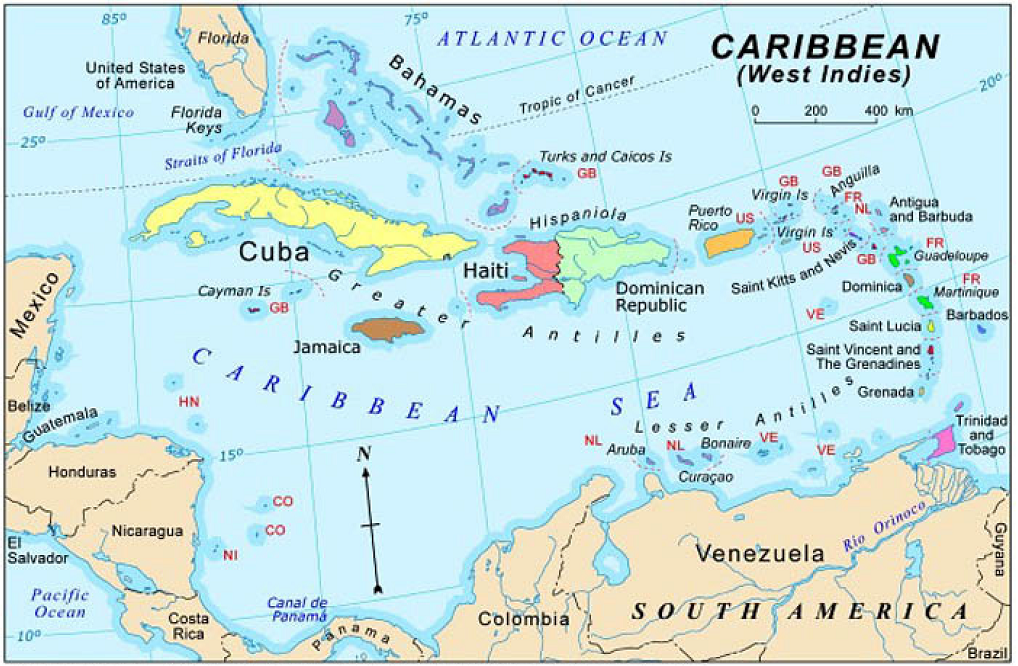
13. Microplastics and Plastisphere at Surface Waters in the Southwestern Caribbean Sea
A very dense article! The Overview: Pollution generated by plastic waste has brought an environmental problem characterized by the omnipresence of smaller pieces of this material known as microplastics (MP). The Highlights: 1) MP was present in 96.67 % of the samples analyzed (n = 60), reflecting their high frequency in the marine environment. 2)The highest concentrations were found in the Ciénaga Grande de Santa Marta, the most productive lagoon in the neotropics. 3) Higher concentrations of smaller-size MP during the rainy season are related to the influence of flow rates. 4)For the present study, the most abundant polymer was polypropylene. 5) Plastisphere in the Southwestern Caribbean has a higher richness than free-living microbes and acts as a vector of the pathogen Vibrio. Want to Dive Deeper? Click the Link!
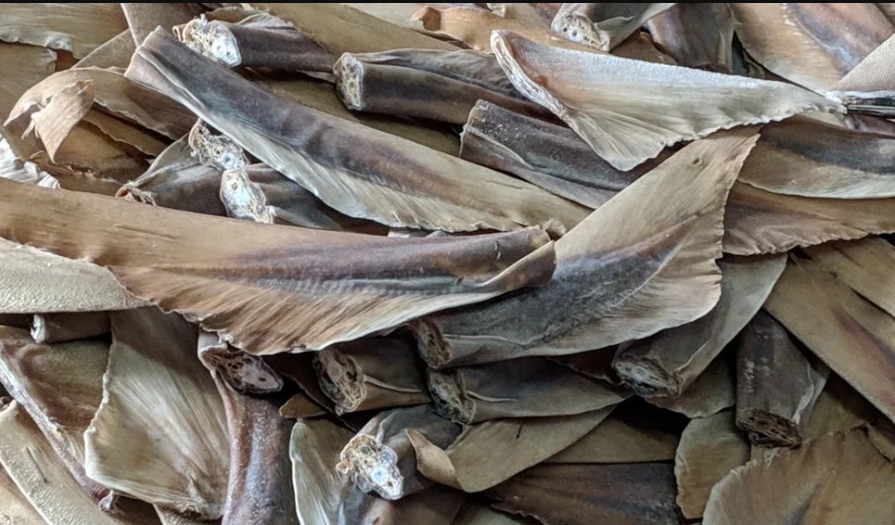
14. Shark Fin Ban Set to Give Teeth to Fight Against Trade
U.K. – Importing and exporting detached shark fins is set to be banned to improve conservation. Animal Welfare minister Lord Goldsmith said: “Shark finning is indescribably cruel and causes thousands of sharks to die terrible deaths. It is also unforgivably wasteful. The practice is rightly banned in UK waters, but the trade continues, with serious implications for the future of these magnificent creatures.
That is why we are now banning the import of detached shark fins and shark fin products.” The presence and variety of sharks in marine areas are a critical indicator for ocean health. At the same time, the animals also play a vital role in aquatic ecosystems by helping maintain healthy fish levels below them in the food chain. Shark conservationist James Glancy said, “It is encouraging to see the UK addressing the fin trade as an element of overfishing.”
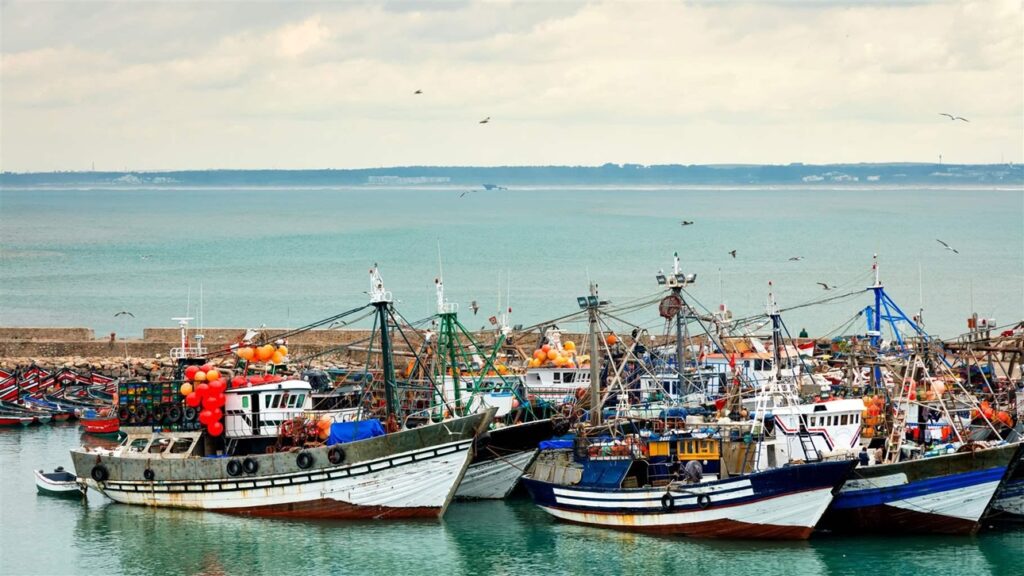
15. As the Ocean Heats Up, Governments Should Prepare for Future Climate Changes
The meeting at the United Nations headquarters in New York this week is an opportunity to agree on the adaptive management needed to keep fisheries sustainable. Parties to the United Nations Fish Stocks Agreement, which governs the “conservation and sustainable use” of globally shared fish stocks, will meet from 15-17 May to specifically discuss how warming oceans are affecting international fisheries and how best to respond.
Pew has three significant recommendations for RFMOs: 1) Adopt climate adaptive harvest strategies for fisheries, 2) transition away from single-species management to ecosystem-based fisheries management, and 3) enact reforms that address how climate change could increase illegal, unreported, and unregulated fishing.
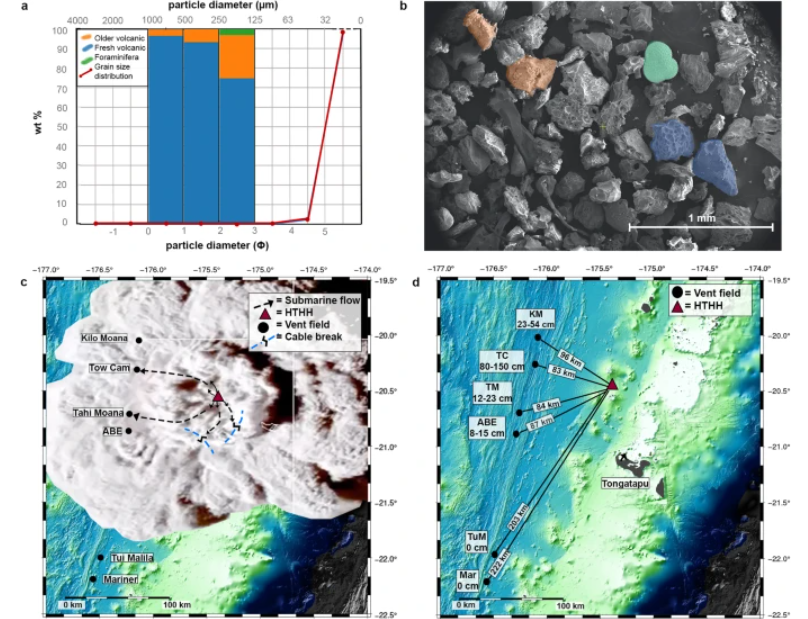
16. New Research on Deep Seafloor Communities Buried by Volcanic Ash from 2022 Hunga eruption
Mass mortality of marine animals due to volcanic ash deposits is present in the fossil record but has rarely been documented in real-time. Here, using remotely-operated video footage and analysis of ash collected at the seafloor, researchers describe the devastating effect of the record-breaking 2022 Hunga submarine volcanic eruption on endangered snail and mussel species that previously thrived at nearby deep-sea hydrothermal vents. (The Hunga volcano is in the Kingdom of Tonga, an island nation in Polynesia.)
With modern observations, the researchers hope to increase their understanding of ecosystem and organismal response, resilience, and succession after volcanic eruptions.
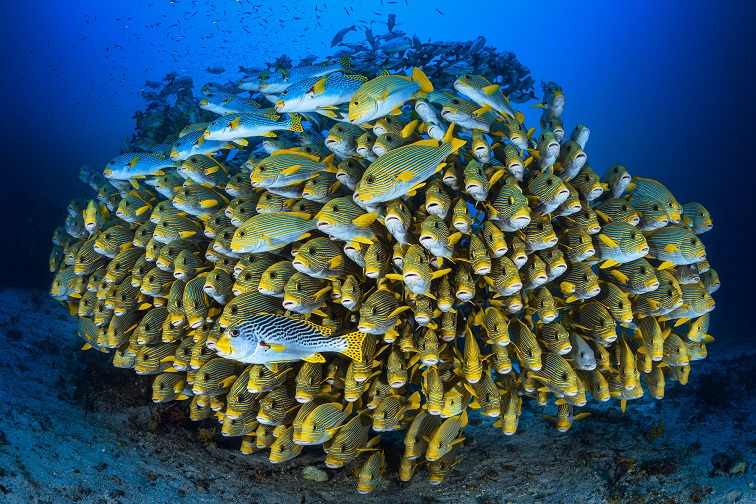
17. The ONU Monaco Confirms Its Commitment to the Conservation of Marine Biodiversity in the High Seas
MONACO – On May 9, 2024, the Principality became the first European and Mediterranean state to ratify the Agreement on High Seas 1, known as the “BBNJ Agreement,” when H.E. Mrs. Isabelle Picco, Permanent Representative of Monaco to the United Nations (UN), presented the instrument of ratification to the Head of the Treaties Section of the Organization.
This ratification followed the signing of the Agreement by H.S.H. the Sovereign Prince, on the first day of its opening for signature, September 20, 2023, in New York. The BBNJ Agreement aims to protect, restore, and ensure the sustainable use of the marine environment, maintain the integrity of ocean ecosystems, and conserve the inherent value of biological diversity. The negotiation lasted nearly 20 years, and Monaco actively participated in all its stages.
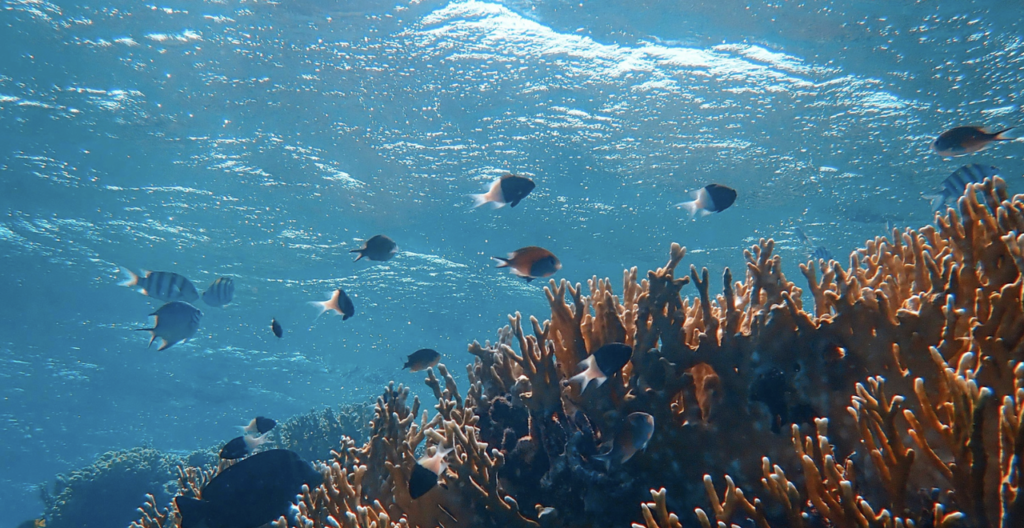
18. The 11th Annual WORLD OCEAN Summit & Expo – How to Drive Investments to Help Scale Blue Projects
Presented a “How to” Session that discussed how increased climate and ocean data offer insights into how to fight climate change and sustain the blue economy. More climate-modeling projects will help drive funding for larger blue-impact projects and startups because the data will help identify the demand and need for these new solutions. Speakers and participants discussed using data to help entrepreneurs and businesses develop more robust business plans, which can be catalyzed by building innovation and infrastructure networks.
They considered how this would enable them to determine investment opportunities—and make the realistic financial projections needed to scale their projects and diminish the financial risks associated with many blue projects. The working group focused on how to engage with stakeholders to bring in more capital and investments in early-stage ventures to catalyze stability and scalability.
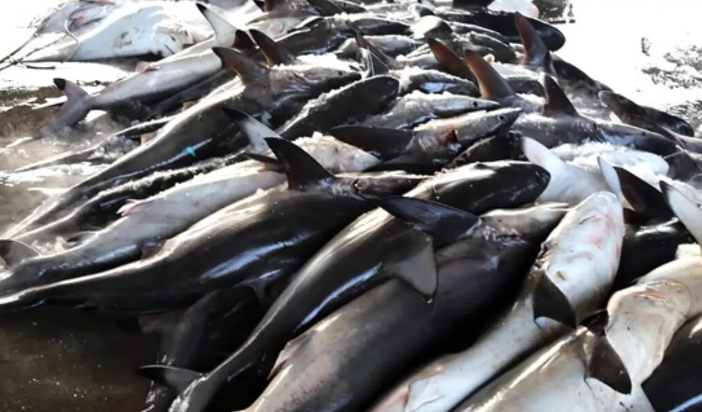
19. India-Oman Collaboration on Shark and Ray Research in Arabian Sea
In a significant move to bolster research and conservation efforts concerning sharks and rays in the Arabian Sea, India, and Oman are set to embark on a joint initiative. This collaboration aims to enhance understanding, promote conservation, and facilitate capacity building in elasmobranch research, focusing on the Arabian Sea region. An upcoming workshop, to be hosted at the ICAR-Central Marine Fisheries Research Institute (CMFRI), will mark the commencement of this collaborative endeavor.
This workshop, jointly organized by CMFRI and Oman’s Marine Science and Fisheries Centre, will be the platform for initiating collaborative research activities and enhancing expertise in elasmobranch research. Dr. A. Gopalakrishnan, Director of CMFRI, emphasized that this workshop will pave the way for joint marine research endeavors and create opportunities for regional management and conservation of sharks and rays in the Arabian Sea.
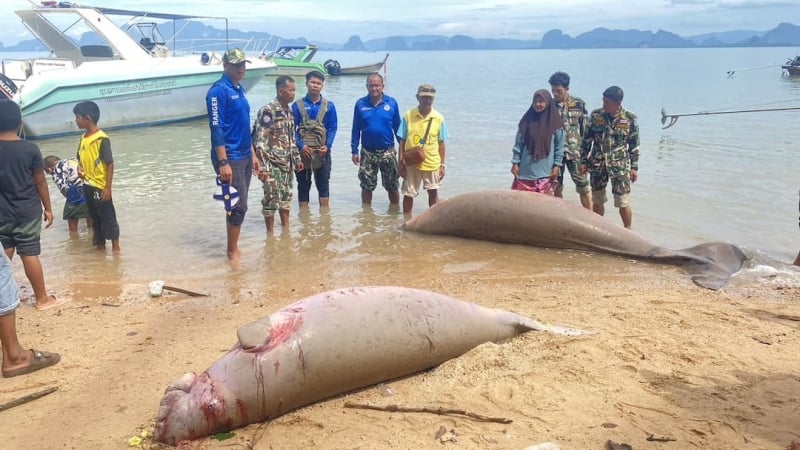
20. Spate of Dugong Deaths Spurs Action
PHUKET, Thailand – Deputy Prime Minister and Minister of Natural Resources and Environment (MNRE) Pol Gen Patcharawat Wongsuwan has ordered national parks officials and other marine wildlife officers to ramp up measures to protect dugongs, including in Phuket after two dugongs, believed to be mother and child, were found dead washed ashore at Koh Mak Noi, near famed Koh Panyee, in Phang Nga Bay.
The cause of death was not confirmed; officers spoke with local villagers to educate them about dugongs, which are understood to migrate from the waters of Trang province to feed on seagrass in Phang Nga Bay. It was noted that at least 20 dugongs had been found dead in local waters since the beginning of the year.
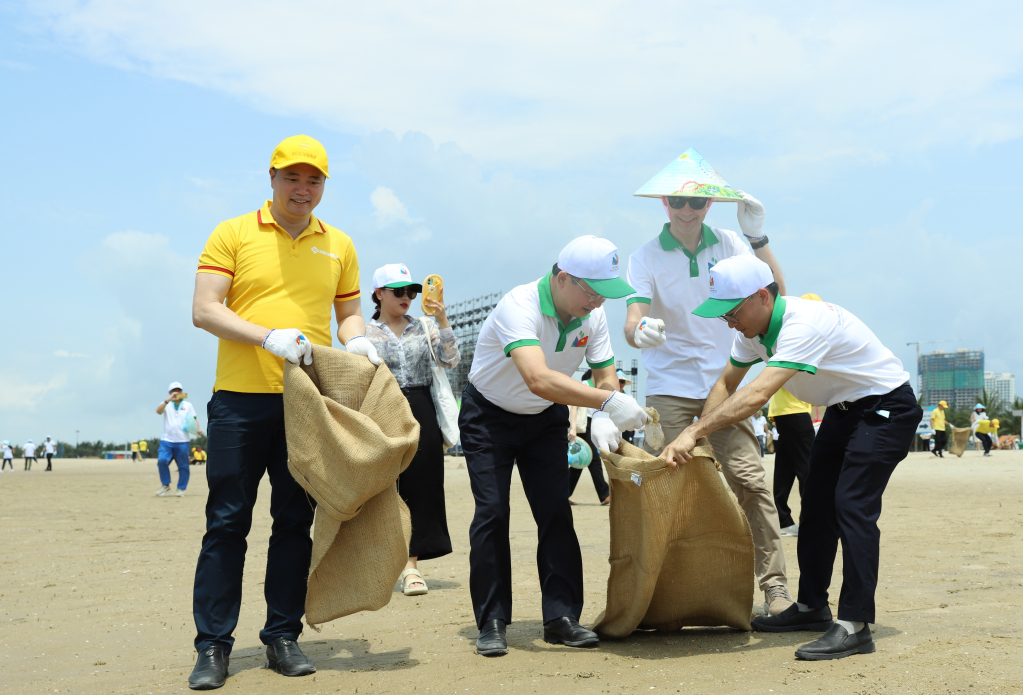
21. Vietnam, EU Join Hands for Clean Environment
HANOI – An event themed “Việt Nam – EU joining hands for a clean environment” took place in Hạ Long City, the northern province of Quảng Ninh, on May 12. The event was held by the Ministry of Foreign Affairs (MoFA), the Quảng Ninh provincial People’s Committee, the EU Delegation to Việt Nam, and Sun Group.
In her remarks, Deputy Minister of Foreign Affairs Lê Thị Thu Hằng emphasized that protecting the marine environment faces numerous challenges, such as pollution risks posed by untreated waste and wastewater and people’s limited awareness of the issue. The Việt Nam – EU Day in Hạ Long, initiated by the MoFA, aimed to help raise businesses and people’s awareness of responsible behavior towards the environment and the natural ecosystem, thereby helping prevent the pollution and degradation of the marine environment.
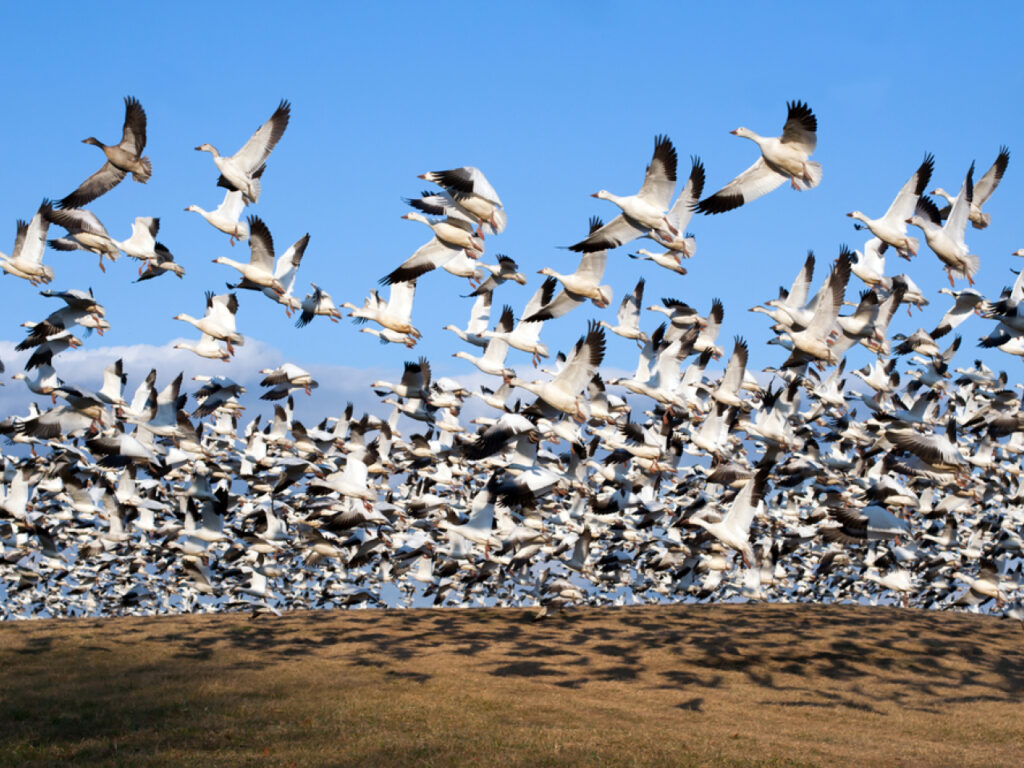
22. Migratory Species at Risk as Population Declines
A United Nations report shows that most migrating animals face a sharp population decline. The first-ever report released by the Convention on the Conservation of Migration Species in February detailed the status of migratory species, including marine turtles, whales, sharks, elephants, reptiles, wild cats, birds, and even insects. It reveals that migratory species face exploitation, such as hunting and overfishing. Migratory species rely on specific habitats at different times in their life cycles. They regularly travel, sometimes thousands of miles, to reach these places.
Globally, billions of individual animals embark on migratory journeys each year, connecting distant continents, countries, and habitats through their migration routes. Besides indicators of environmental health, migratory species are also crucial in the large-scale transfer of nutrients between environments. The conservation needs and threats to migratory species need to be addressed with greater effectiveness, at a broader scale, and with renewed determination.
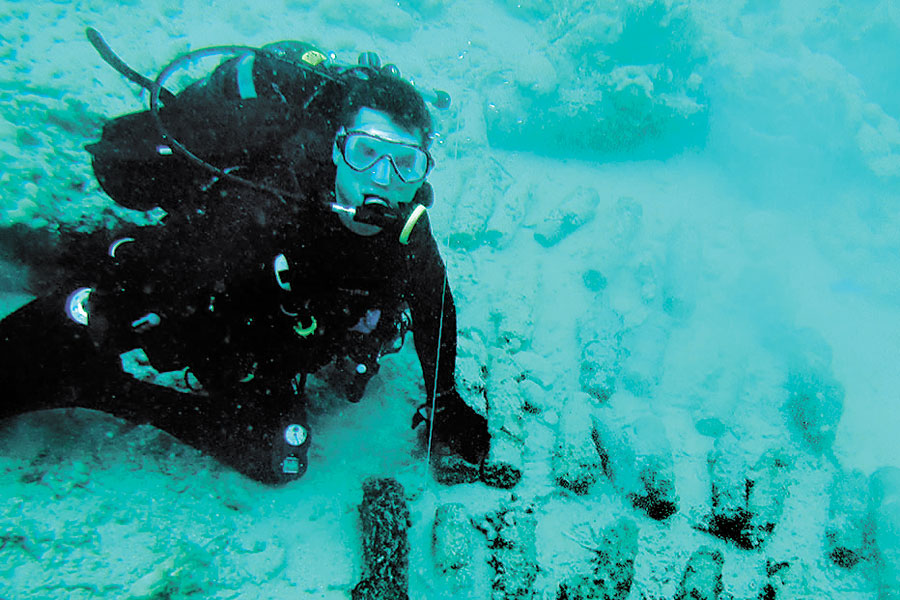
23. TRADEWINDS: Canadian Navy Goes Underwater in Reef Research Dive
BARBADOS – The Canadian navy and Barbadian divers began to map and research large areas of the island’s west coast reefs. The research dive is a joint exercise between the non-profit Coral Reef Restoration Alliance (CORALL) Barbados and the Canadian Armed Forces. Coral bleaching remains a worrying development. The importance of coral reefs to the marine environment and economy must be studied and monitored.
The coral reefs are a nursery for the baby fish, so it’s a snowball effect when you don’t have these nurseries available for the baby fish. There is also to consider the impact of the tide because when you don’t have that first barrier there, which is the reef itself, you have additional energy being transferred onto the beach and destroying its quality.
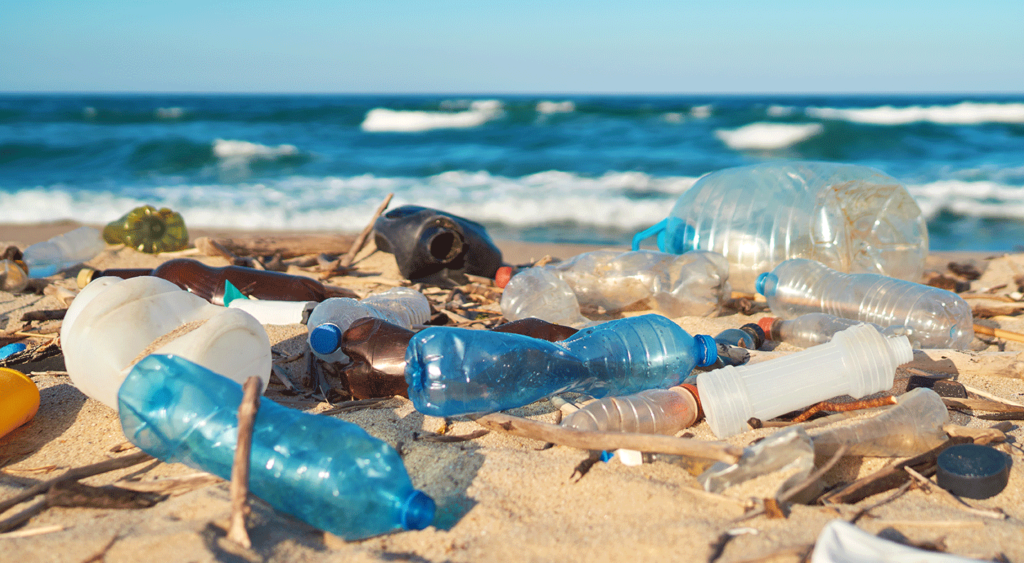
24. Ministry Seeks to Ban Single-Use Plastic
ISLAMABAD – The authorities are planning a campaign to rid the federal capital of single-use plastic waste. Although multiple governments have tried repeatedly to address Islamabad’s plastic waste problem, the increase in commercial businesses, alongside the growing populace, proves to be a recurring challenge. Environmental pollution remains a persistent issue in the city, given its popularity as a tourist destination.
The Ministry of Climate Change and Environmental Coordination plans to take concrete steps against plastic pollution. In Pakistan alone, 3.3 million tons of plastic waste is generated annually, equivalent to the height of two K2 Mountains. Realizing the urgency of action to curb plastic pollution, 175 nations forged synergies at the United Nations Environment Assembly in 2022 to develop an obligatory international agreement to end plastic pollution by 2024.
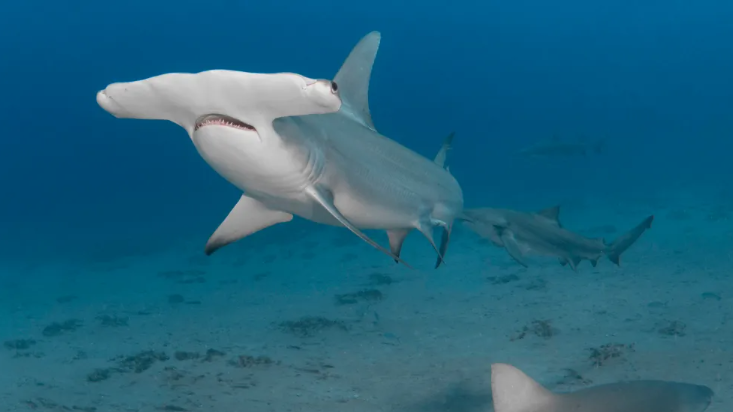
25. Hammerhead Sharks Are Back in the Caribbean: “I Could Not Believe It”
Hammerhead sharks, fish with pronounced oblong heads and bodies, are unmistakable. Seeing one of these critically endangered animals is a thrill, but seeing nearly a dozen plying the water side by side is worth writing home about. This was especially true for Mauvis Gore and her colleagues when, in 2022, they saw a group of scalloped hammerheads off the Cayman Islands—the first time since the 1970s that hammerheads have been seen schooling in the Caribbean Sea.
Cassie Rigby, who is in charge of assessing the population status of scalloped hammerhead sharks for the IUCN Red List of Threatened Species, says the observation of schooling hammerheads is a promising sign for the species’ future. While exciting, Rigby says this observation alone isn’t enough to call the population recovered. She stresses that much more must be done to stop scalloped hammerheads from declining further.
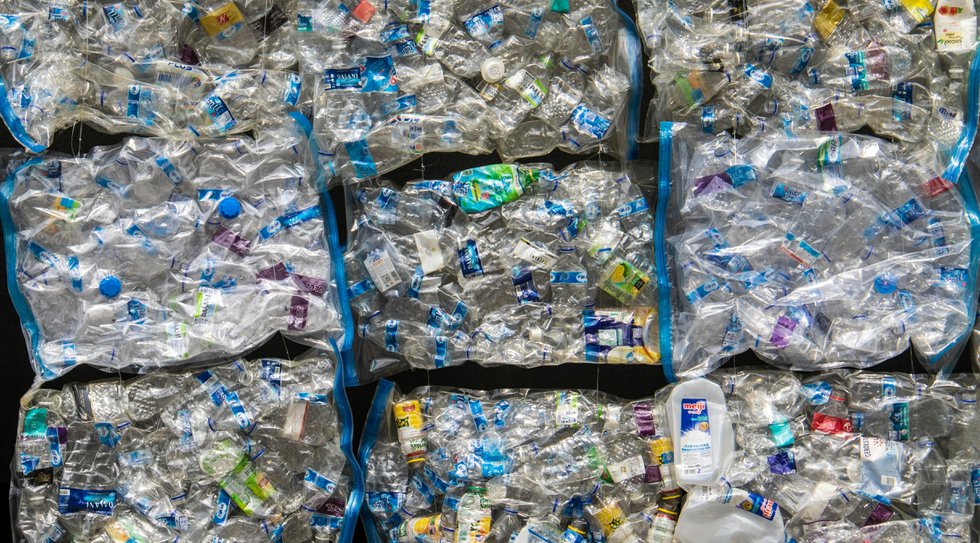
26. Top 10 Countries Responsible for Most Exported Plastic Waste
This is a fascinating article. It lists the Top 10 countries ranked by the most waste exported per year and the top 10 countries by the most imported per year. It also discusses what happens to the exported plastic and, last but not least, what to do about it. The Key Highlights: A new report by CleanHub details that five million tonnes of plastic waste are exported annually, mainly from highly developed countries, representing 71% of the global total.
Despite these exports, wealthier nations are offloading their environmental responsibilities onto less developed countries, which struggle to handle the waste effectively due to a lack of suitable infrastructure. The environmental impact is concerning, with mismanaged waste exports contributing to ocean pollution and toxic emissions from improper disposal practices. What to see who ranked where? Click the Link!
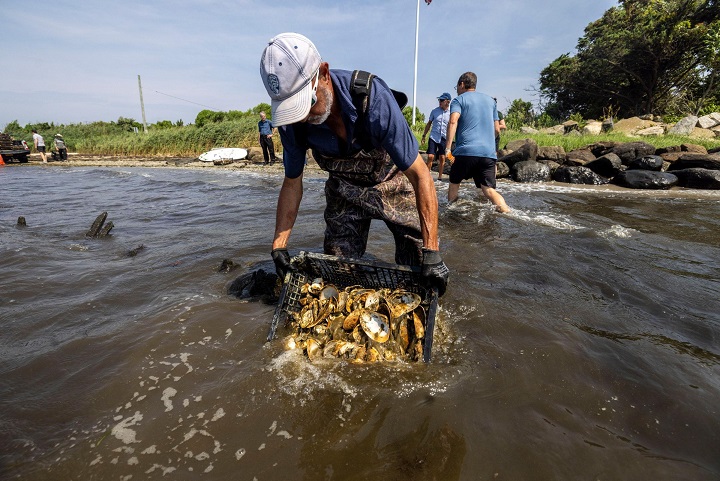
27. Long Island’s Collaborative Efforts to Restore Shellfish Habitats and Improve Water Quality
Long Island is actively working to protect and restore its shellfish habitats through initiatives like the Hempstead Harbor Protection Committee (HHPC) and the Long Island Shellfish Restoration Project. These efforts, driven by inter-municipal collaborations and supported by New York State, aim to improve water quality and revitalize shellfish populations by planting millions of clams and oysters in sanctuary sites.
Despite challenges such as nitrogen pollution and harmful algal blooms, significant progress has been made in areas like Scudders Pond, demonstrating the effectiveness of targeted restoration projects and public engagement in environmental stewardship.
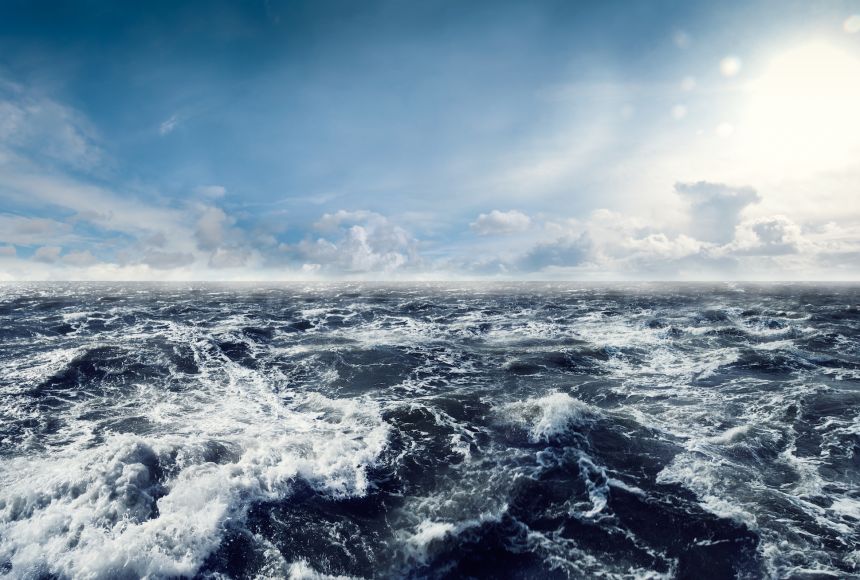
28. South Korea to Launch Blue Carbon Trading System to Boost Marine Carbon Sequestration
South Korea plans to launch a blue carbon trading system aimed at enhancing the marine sector’s carbon sequestration capacity. This initiative is part of a broader national strategy to improve coastal ecosystems and reduce carbon emissions by trading credits for blue carbon, which includes carbon stored in marine and coastal ecosystems. The program underscores South Korea’s commitment to innovative environmental solutions and sustainable development.
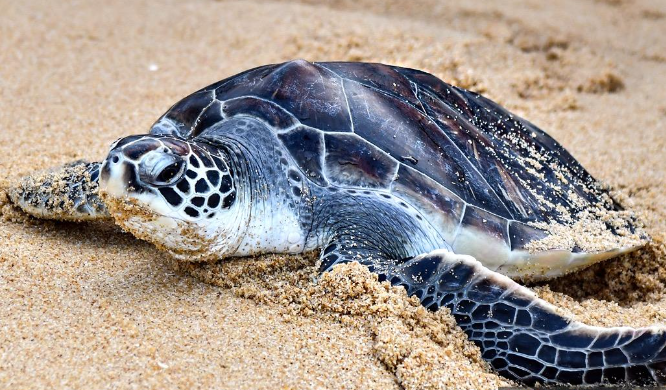
29. Teluk Bahang Beach Declared as Turtle Nesting Site
Malaysia: The Fisheries Department (DOF) declared Teluk Bahang Beach a turtle nesting site and set up the Marine Conservation Centre at Angsana Resort to care for, conserve, and manage the endangered species. Based on records between 2019 and 2023, this effort could increase turtle landings, as there had been 292 landings, 27,701 eggs discovered, and 17,607 hatchings.




